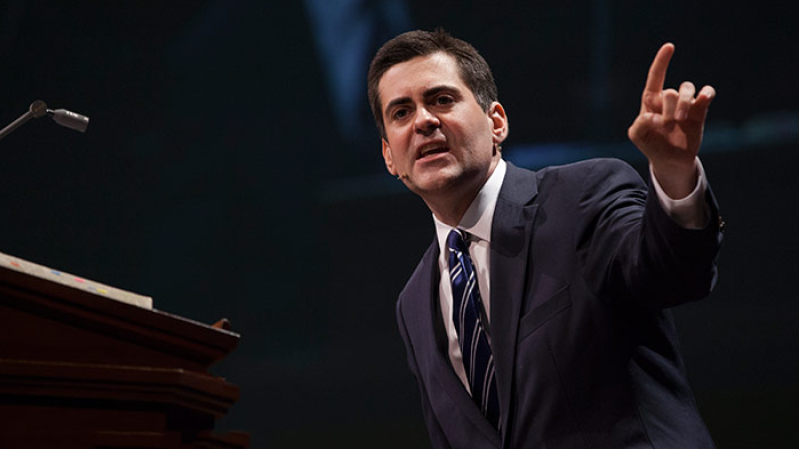
Evangelist Russell Moore, the president of the Ethics and Religious Liberty Commission of the Southern Baptist Convention, has written a new book that focuses on various topics, including politics, religious freedom, and Islam. He contended that Islam does not threaten the power of the gospel.
Moore made that argument in his new book, Onward: Engaging the Culture Without Losing the Gospel. In an interview conducted by Jonathan Merritt of Religion News Service, he expressed disagreement with Rev. Franklin Graham, who contended that Muslims should not be allowed to immigrate to the United States.
"I am not for deporting or barring Muslims from the United States. It is not because I believe Christianity and Islam are morally equivalent," Moore said. "It is because I believe in the power of the gospel, and the presence of our Muslim neighbors doesn't threaten that."
Moore added that Christians should "share the gospel evangelistically with them."
"Many of the Muslim refugees in this country may well be our future brothers and sisters in Christ," Moore said.
Given that religious liberty was an important concept to Moore, Merritt asked him why he thought Christian business owners should be given the option to refuse service in regards to same-sex weddings.
"I think the government should not coerce people with the threat of running them out of business to participate in activities that they believe to be immoral," Moore said. "There is a difference between a business selling a product and a person using his or her creative talents to participate in a ceremony that he or she believes to be immoral."
Merritt then asked him if it was OK for a Christian baker to refuse to "participate" in an interracial wedding. Merritt cited the theoretical example of the Christian baker as "a Bob Jones University graduate that believed the Bible taught that a black person shouldn't marry a white person."
"No, because no one is suggesting that religious liberty is an exemption from all laws and expectations," Moore said. "Rather, we are asking that the government show a compelling interest in why they are violating someone's free exercise and how they are doing so in the least restrictive means. The government has shown a compelling interest in dealing with racial discrimination because we have a two century long history of state coercion of people on the basis of race."
Moore contended that the categories of race and sexual orientation "are quite different."
"I don't think the issue is refusing service, but participating in a wedding that is a moral violation of their conscience," Moore said. "The belief about human sexuality is one held by every major religion. This is not some novel idea."
Moore pointed out that Christians should adopt a "prophetic minority" mindset as to one that adheres to the "Moral Majority."
"The assumption that the larger culture agrees with Christians on values issues led to evangelicals minimizing the theologically distinctive aspects of Christian witness," Moore said. "It also set up evangelicals to be disappointed when the culture did not turn out the way many expected it to turn out. So our response ought to be that we are always, in every culture, strangers in exile."
The theologian told Merritt that such a mindset was "not a new phenomenon."
"Now we have a clarity about where we fit in American culture that is appropriate and right, and that gives us an opportunity to speak as a people who are both alienated and engaged," Moore said.
Merritt asked him if America was in moral decline. Moore replied that "cultural revolutions and moral trends are never permanent."
"I don't think American culture has fallen from a golden age into chaos. Rather, we are living in a fallen world as we always have been," Moore said. "Our issue is not moral rise or moral decline, but fallenness. And that fallenness manifests itself in different ways at different times."
Moore's latest book can be found online and in bookstores across the United States.







